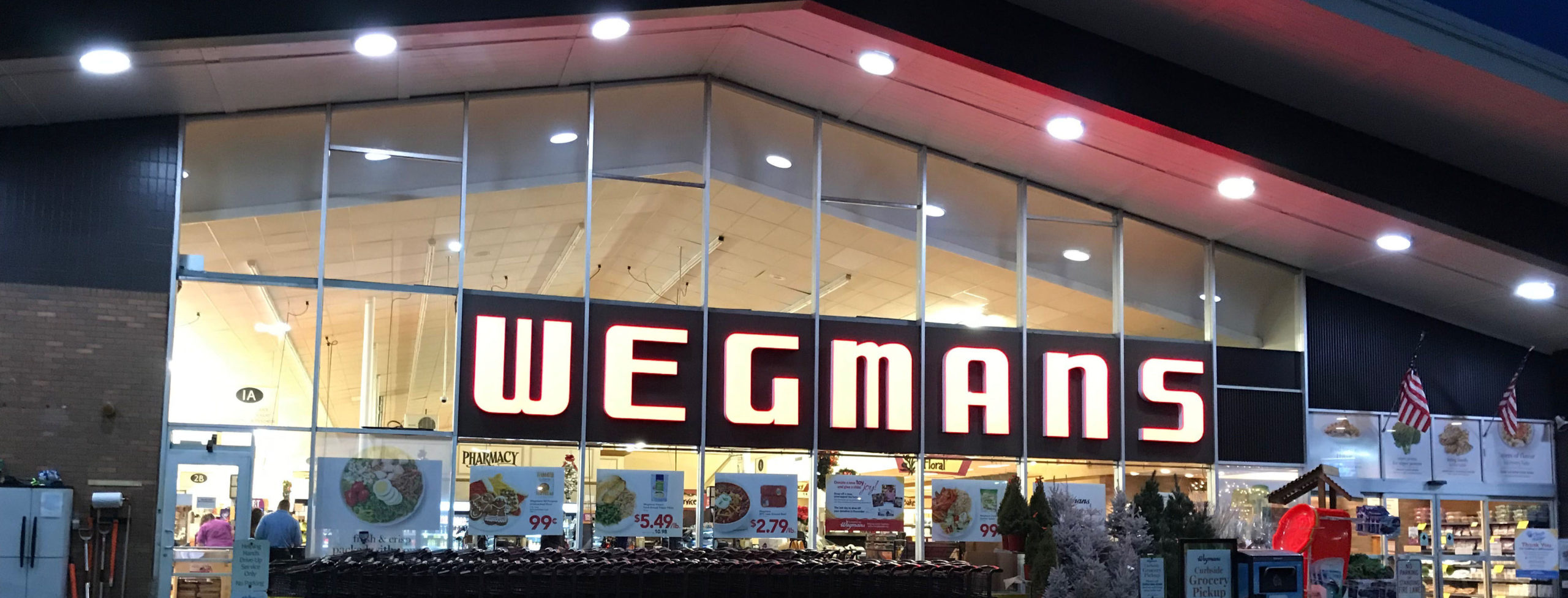I’ve seen lots of chatter on social media in recent days from people who love their Wegmans and warn looters and vandals to stay away.
Of course, we all feel that way. Not just about Wegmans, obviously, but about every person and property.
But the posts do bring to mind something that has nagged at me for years.
Is Wegmans too white?
One way of addressing the question is to ask if Wegmans is too suburban.
In Monroe County, NY, home of the company’s corporate headquarters, only one of 17 stores operates within the Rochester city limits.
The company closed its store on Mount Hope Avenue in 2003 and its Driving Park Avenue store in 2007. Other city locations had been shuttered in prior years.
Rochester, where most neighborhoods are markedly separated by race, is 47% white and 40% black. The sole remaining Wegmans store, on East Avenue, caters to affluent sections of the city and nearby Brighton.
The company has long focused its efforts in the suburbs and much smaller cities in the Northeast. In other words, communities that are predominantly white.
The late family patriarch, Robert Wegman, anticipated suburban growth in the 1950s and bought up real estate before it was surrounded by new housing. Only in recent years, most notably with the 2019 opening of a new store in Brooklyn, has Wegmans ventured into major urban markets.
I’m not suggesting that the company discriminates in hiring. I work with black employees and see many at other stores. Wegmans is a professional organization and I’m sure it meets equal employment opportunity requirements. As a lowly night-shift worker, I can’t say how many of the top brass are minorities.
And to be fair, the company has a stellar record when it comes to philanthropy, contributing generously to food banks and community organizations.
Yet it has maintained a distance from large black populations and hasn’t gone out of its way to make its suburban stores accessible to poor city residents. Instacart doesn’t currently accept food stamps and home delivery is expensive. Bus routes, from downtown Rochester to suburban stores, for example, sometimes require long walks and the crossing of major thoroughfares. Wegmans wields so much influence, it undoubtedly could convince regional transit authorities to make these trips easier.
But then suburban stores would have more black shoppers. Does Wegmans worry that this would discomfit its existing customer base, particularly now, in the wake of civil unrest? Again, I’m not privvy to conversations in the executive suite.
I do know that people consider shopping opportunities when they make decisions on where to live. Every day, I read tweets by people wailing about not having Wegmans nearby.
The company’s choices of location (it plans to open stores soon in three more suburbs – Harrison, NY; West Cary, NC; and Tysons Corner, VA) can have a huge impact on the life and death of cities and neighborhoods.
If Wegmans is planning further expansion in urban areas, if it’s attuned to the growing sensitivities of customers to economic inequality and racial discrimination, it needs to diversify from its big-store, big-parking-lot suburban model.

Wegmans is an excellent company. It’s priorities do not include meeting the food needs of the poor people of its hometown.